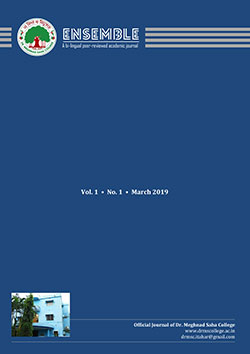Negotiating the Self and the Other in Times of Globalization: Unveiling Afghan Lives through Select Novels of Khaled Hosseini
Abstract:
Globalization has brought about an unprecedented interconnectedness between people, made possible a neoliberal economy, and has challenged the citizens of the world with a clash between multiple cultures across the continents. The ecumene of the planet is home to myriad peoples with maverick cultures, languages, etc., scattered throughout on its plane. Scientific or technological achievements have helped us as the citizens of this globalized world, to come closer physically but not without some effet de bord. Xenophobia, racial violence, the clash between different civilizations, etc., are the challenges that accompany globalization. The arguments here exude the colossal responsibility that lies presently on the shoulder of a writer to connect peoples internally or psychologically by exposing them to different cultures, peoples, etc., and facilitate a global negotiation between diverse people. In this time of globalization, we can’t be truly globalized unless we lend our ears patiently to the writers across the globe. With such standpoints, the paper argues how Khaled Hosseini, an Afghan-American writer, has enlightened the global audience about Afghanistan through his novels. The paper examines two novels of Hosseini and tries to evaluate their contribution towards familiarizing the Afghan ways of life by suggesting Hosseini as a communication bridge between the people of Afghanistan and beyond.
Keywords:Afghanistan, Cosmopolitanism, Culture, Interconnectedness, War, Xenophobia
https://doi.org/10.37948/ensemble-2020-0202-a018
Views: 12522



